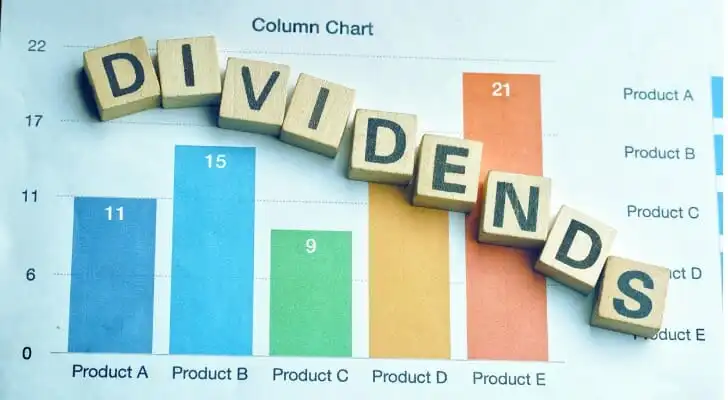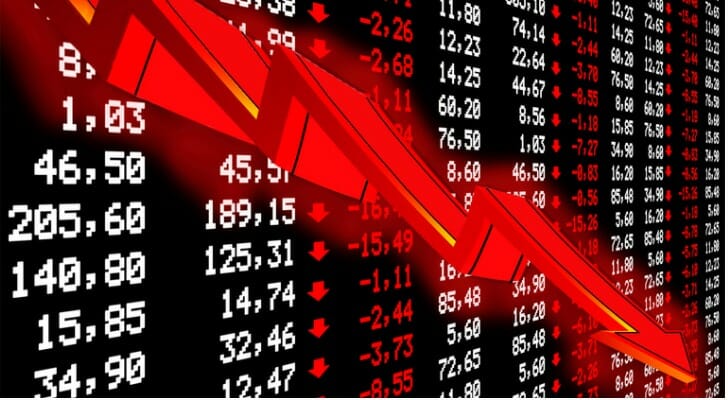 Despite a recent bounce-back, stock prices have fallen sharply since the coronavirus first emerged. For some investors this may not prove much of a problem. Historically stocks have rebounded strongly in the wake of serious recessions and, as of mid-May, the market seemed to be on track to continue that pattern. However, long- and short-term investors are being impacted in another way: In recent weeks dozens of companies have announced that they will be reducing or suspending dividend payments altogether. For income investors, this means that their portfolios will not pay out their anticipated returns. For others, this will cut into funds that could have otherwise fueled growth and reinvestment. For everyone in the market, this means yet another hit to a volatile stock market.
Despite a recent bounce-back, stock prices have fallen sharply since the coronavirus first emerged. For some investors this may not prove much of a problem. Historically stocks have rebounded strongly in the wake of serious recessions and, as of mid-May, the market seemed to be on track to continue that pattern. However, long- and short-term investors are being impacted in another way: In recent weeks dozens of companies have announced that they will be reducing or suspending dividend payments altogether. For income investors, this means that their portfolios will not pay out their anticipated returns. For others, this will cut into funds that could have otherwise fueled growth and reinvestment. For everyone in the market, this means yet another hit to a volatile stock market.
What Are Suspended Dividends?
 Publicly traded companies will sometimes issue direct cash payments known as dividends to their shareholders in the form of dividends. These are typically calculated on a per-share basis. For example, a company may pay a $0.50 dividend, in which case stockholders would receive a check worth $0.50 for every share of stock they own. A company pays dividends out of its profits, generally on either a quarterly or annual basis depending on how it keeps its books.
Publicly traded companies will sometimes issue direct cash payments known as dividends to their shareholders in the form of dividends. These are typically calculated on a per-share basis. For example, a company may pay a $0.50 dividend, in which case stockholders would receive a check worth $0.50 for every share of stock they own. A company pays dividends out of its profits, generally on either a quarterly or annual basis depending on how it keeps its books.
Many investors, as well as millions of retirees, plan their investments around dividend payments. They buy companies that have historically paid regular and significant dividends. This practice generates revenue without shareholders having to actually sell any assets. These investors also tend to favor bonds for the same reason. Bonds issue what are known as coupon payments, as the companies underlying each bond make contractually obligated payments based on the interest rate of that debt.
Unlike bonds, however, dividends are paid at the discretion of corporate leadership. While a company may choose to regularly issue dividend payments for decades on end, the board of directors can also choose to reduce those payments or even entirely discontinue the practice at any time. Unlike the interest on a bond, a company is not required to make dividend payments to its shareholders. Companies can, and often will, do this to preserve cash when profits are down or in the face of market uncertainty.
This is what has happened during the coronavirus recession.
Many companies have seen their sales slow or collapse altogether since late March. This has crippled their cash flow and created market-wide uncertainty, as no one really knows what will happen with the coronavirus or the government’s response over the coming months. In response, many companies have suspended planned dividend payments. Some have canceled payments that were already scheduled to go out in April. Others have announced that they will not make previously scheduled payments for the remainder of 2020.
This trend may gain steam as more companies accept federal aid in weathering the recession. The CARES Act provides loan subsidies and guarantees for companies impacted by the coronavirus, but on the condition that they suspend shareholder payments until at least 12 months after they pay off this loan. At time of writing the government has not yet begun enforcing this provision. Investors should not count on this practice continuing however.
Who Will This Affect?
Suspended dividends will affect anyone who owns stock in a company that had planned to issue payments, but which will now not do so. However, a few categories of investor will be particularly impacted:
Retirees
Retirees are often income investors and long-term investors. Like long-term investors, they plan their assets over a period of years and will often sell assets for the capital gains. Like income investors, however, they plan on living off the money generated by their portfolios in part or in whole.
Also, like income investors, having that plan disrupted can threaten the money that a retiree counts on to live.
Many retirees structure their portfolios for income investment, particularly in the early years of their retirement. Suspended dividends cut into the payments that retirees have been counting on, forcing them to choose between selling assets that they may need in years to come or taking on debt they may not be able to afford.
Income Investors
Serious income investors have a firm rule: never touch the principal. These investors work hard not to sell their stocks for capital gains profit. Instead, when they sell, they reinvest those gains, rolling their money into new investments. Unlike investors who balance re-investment against profiting off asset sales, income investors build their portfolios to profit when assets issue direct payments. The most common assets for this category of investor are bonds, which make regular coupon payments, and stocks with a history of issuing dividends.
Many income investors use their portfolios as a significant portion of their household earnings. For some, particularly retirees, this is their only form of income. As a result, when companies begin to issue market-wide halts to dividend payments, this can create a very real disruption to their personal finances.
Long-Term Investors
Many long-term investors invest around dividend payments. Under this strategy, an investor will buy a stock with an eye to holding it for years to come, rolling over and reinvesting dividend payments to grow that asset over time.
Unlike an income investor, long-term investors eventually sell the underlying asset for a profit. Also unlike an income investor, long-term investors don’t necessarily invest around keeping dividend payments as personal income. Instead, they often use dividend payments to maximize their capital gains, taking that money and using it to buy more shares of stock until they’re ready to sell. Suspended dividends will disrupt that plan, eliminating the payments that a long term investor had planned to use for portfolio development.
Mutual Funds and ETFs
Many mutual funds and exchange-traded funds are structured around income investing. They are built for investors who would like to generate passive revenue from their assets (such as the types discussed here). These funds often focus on investing in bonds and stocks with a history of strong dividend payments.
These fund structures will be disrupted as companies increasingly suspend dividend payments. They will have to choose between missing their yield targets and restructuring their portfolios during a difficult market. These are two bad options, and both will negatively affect individual investors who hold shares of an income-oriented fund.
The Bottom Line
 When a company suspends dividend payments, this means that it has canceled the payment it intended to issue to shareholders. This can happen for a period of time or for the foreseeable future, and can disrupt the plans of people who own that company’s shares. Retirees and income investors may be well advised to shift their portfolios towards bonds, which will continue to generate revenue in all cases short of corporate default. However, many, if not most, investors who sell assets right now will do so at a loss, making this a difficult choice in the face of a bear market.
When a company suspends dividend payments, this means that it has canceled the payment it intended to issue to shareholders. This can happen for a period of time or for the foreseeable future, and can disrupt the plans of people who own that company’s shares. Retirees and income investors may be well advised to shift their portfolios towards bonds, which will continue to generate revenue in all cases short of corporate default. However, many, if not most, investors who sell assets right now will do so at a loss, making this a difficult choice in the face of a bear market.
Tips for Investing
- Consider talking to a financial advisor about how best to position your portfolio if dividends get suspended. Finding the right financial advisor who fits your needs doesn’t have to be hard. SmartAsset’s free tool can match you with up to three local financial advisors, and you can choose the one who is best for you. If you’re ready to get connected with local advisors, get started now.
- Even in times like these, income investing is one of the smartest long-term positions you can take, yet many investors feel like it is out of reach. Our guide to income funds can show you how income investing is not only accessible, but potentially very profitable for large and small investors alike.
Photo credit: ©iStock.com/Athitat Shinagowin, ©iStock.com/kate_sept2004, ©iStock.com/blueshot